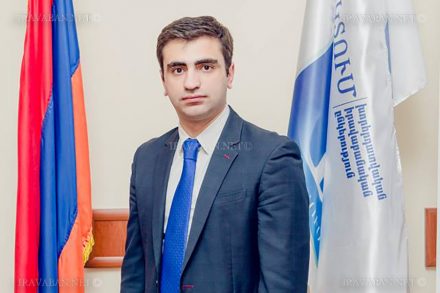Criminalization of illicit enrichment is even delayed. Advocate Zorayr Harutyunyan believes that: “Stipulation of such offense will increase the number of registered criminal acts for several times, of course under the conditions of objective, comprehensive and complete examination. It should be noted that the public’s role in the fight against corruption would increase as well,” – said the advocate in the interview we Iravaban.net.
Read the Interview on observations of the young advocate below.
– Do you think it is appropriate to criminalize illicit enrichment in our country and what will it give to us?
– I believe that the motion on envisaging responsibility for illicit enrichment is even belated. The need of this draft has been awaited long time ago. The relevance of that problem, which is aimed at solving the problem is so justified that each citizen is able to explain the necessity of criminalizing such act. However, as we all know, some of the norms have never operated, even after incorporation in the legislation. I think that through carrying out observations the law enforcement bodies should seek to identify the elements offense, and in case of such identification shall initiate a criminal case or call to liability the guilty. Otherwise we just have another “dead norm”.
– Illicit enrichment is a complex offense which means that there it should be corruption as well as theft, etc. Do you think, through preventing these crimes it is possible to achieve the situation where people shall not enrich illegally and there would be no need to add such article in the Code?
– You are quite right, but corruption occurrences that you mentioned, have a high degree of latency, which significantly complicates the identification procedure of such cases by law enforcement agencies. The nature of this offense is that under the conditions of impossibility to identify other crimes (e.g. bribery); it may be possible to identify the corruption in other ways. It is assumed, that the high official spends the illegal proceeds on his own assets, which is much easier to identify that the case of bribery. In case of identification of such assets it is easier to compare them with income and to prevent/reveal corruption occurrences and call such persons to liability. Based on the above said, I think that the need to provide such corpus delicti is completely justified.
– The draft foresees imprisonment for the term of 3-6 years. Is this a mild or severe punishment?
– I think the sentence of imprisonment is equivalent to the degree of social danger of the crime committed, and sufficient for achieving the objective punishment. The sanction provided for the committing crime, stipulates deprivation if right to hold certain positions or carry out certain activities for up to 3 years with confiscation of property, which essentially contributes to the formation of proportionality of punishment provided for the offense. I believe we should pay attention to the international experience as well. The suspected person in a number of countries bears the burden of proof to justify the legitimacy of his income sources. This means that the burden of proof shall lie on the suspect or offender. I think the legislative authority should establish such an exception issuing from the principle of presumption of innocence.
– If the law is adopted and illicit enrichment is criminalized what shall follow it?
This should be follow by a long, thorough work of the law enforcement bodies. I stipulation of such offense will increase the number of registered criminal acts for several times, of course under the conditions of objective, comprehensive and complete examination. It is notable that it will increase the role of the public in the fight against corruption. The Civil Society Institutions may carry out independent observations and discover the elements of offences which then would be channeled to the law enforcement bodies and be demanding to bring guilty persons to justice.
– Which body will be able to combat illicit enrichment best; the Special Investigation Service, an independent or a universal body?
Article 190 of the RA Criminal Procedure Code defines the subordination of investigation, concerning to the majority of examining persons who are subject of the corpus delicti. According to the mentioned legal norm it is implemented by the Special Investigation Service of the RA. In definite cases, for instance, when the crime is committed by Civil Servants, the criminal investigation is conducted by the Investigation Committee of the RA.
I think there is no need to make changes in the investigative subordination rules. The body that is able to combat illicit enrichment best shall be the body which carries out corresponding control: in case of High-Ranking Officials it is The Commission on Ethics of High-Ranking Officials of Armenia.































